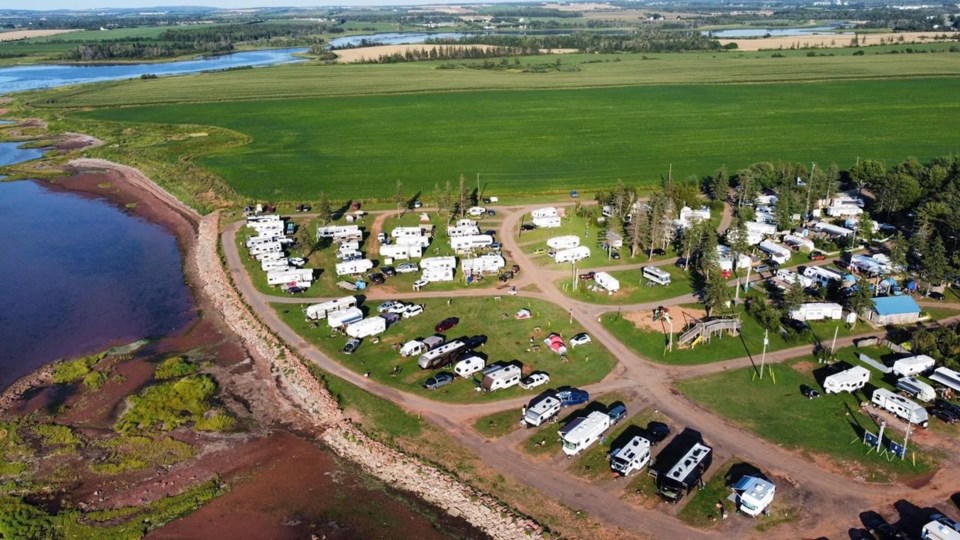LOWER NEW ANNAN, P.E.I. — After 23 years in business, the owner of a popular campground in northwestern Prince Edward Island says he’s left with no option but to close permanently because of the damage caused last fall by post-tropical storm Fiona.
Matthew Wedge estimates that the powerful storm, which hit Atlantic Canada in September 2022, caused about $500,000 in damage to the Crystal Beach Campground, in Lower New Annan, P.E.I.
In an interview Monday, Wedge said his insurance won't cover the cost of repairing the site after the coastal storm surge, adding that he hasn’t been able to qualify for government assistance either.
“I’m in the situation where I’m going to have to close it, there’s no other option,” Wedge said. “It’s really been a tough pill to swallow.”
While the decision is a blow to Wedge and his family, he said it will also have an effect on the local economy. He bought the campground in 2000 from a family that had operated it for close to 40 years, he said.
“I had roughly 180 sites,” Wedge said. “The (economic) spinoff from that alone was a lot over the years. A big part of our business was repeat clientele.”
Fiona’s storm surge and high winds hit the campground’s electrical infrastructure, tore up many of the campsites, and sent a pool deck and splash pad crashing into a building housing washrooms and a recreational centre, he said.
“There were huge rocks that were lifted and carried in 10 metres (from shore) with all kinds of other debris.”
The location of the 12-hectare property has since been classified as a high-risk coastal area, he said, adding that the new designation prevents him from getting help from the federal government’s $300-million Hurricane Fiona Recovery Fund. His insurance provider, meanwhile, won't cover storm surge losses — although it did cover damage sustained at the campground during post-tropical storm Dorian, in 2019.
“I’m thinking there are not going to be many people in the market that are going to want to buy the property given its history and the fact that it’s in a high-risk area,” Wedge said.
Fiona slammed into the province on Sept. 24, 2022, with winds gusting up to 149 kilometres per hour. It toppled trees, damaged homes, destroyed wharves and eroded large parts of the Island’s coastline.
Wedge said he’s resigned to the fact that he can’t operate a campground at the site “even if I want to.”
“I did my best,” he said. “At the end of the day I guess I’ve been climate impacted.”Â
This report by The Canadian Press was first published Nov. 13, 2023.
— By Keith Doucette in Halifax.
The Canadian Press



